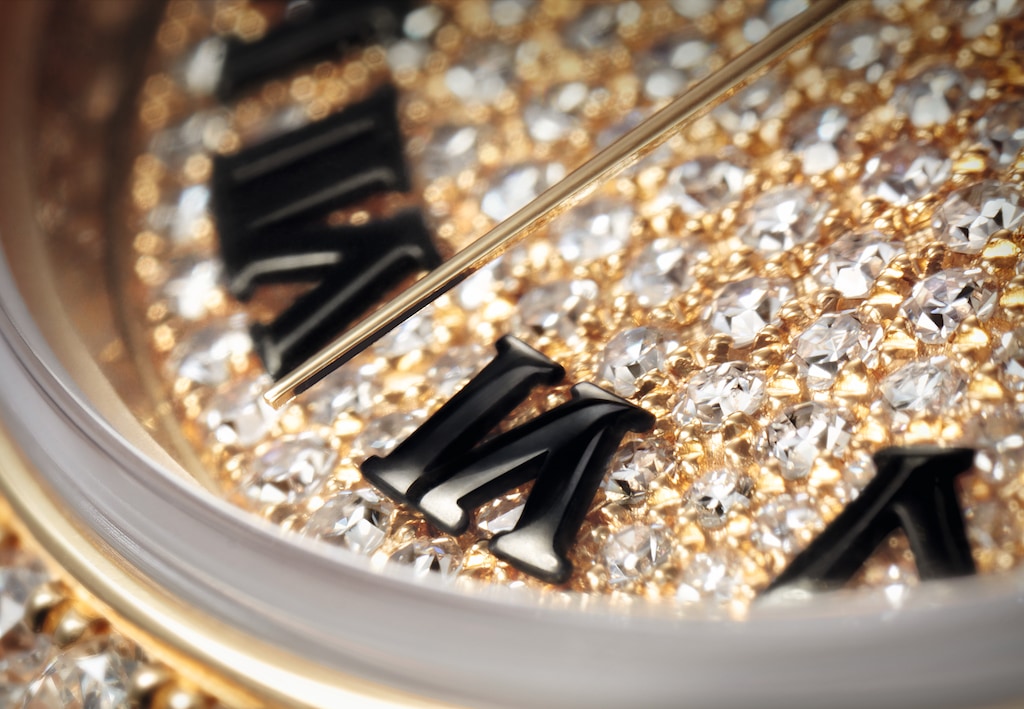By keeping the entire production process in-house, this legendary watchmaker ensures perpetual perfection across each individual component of its timepieces.
It is a common practice for numerous watchmakers, even several prestigious ones in the industry, to draw upon external suppliers for many of the essential elements of their timepieces. They may purchase movements from one supplier, cases from another, dials, bracelets and so forth from additional third parties, before finally assembling finished watches in their factory.
But not Rolex.
Both a brand and an integrated and independent watchmaking group, Rolex designs, develops and produces in-house the majority of its watch components, from the casting of the gold alloys to the machining, crafting, assembly and finishing of the movement, case, dial and bracelet.
The history of Rolex and Swiss watchmaking are inextricably linked. Pioneer in the development of the wristwatch, the brand is at the origin of numerous major watchmaking innovations, and has registered over 500 patents in the course of its history. It possesses incomparable capabilities in all aspects of the horological arts.
The brand’s movements are manufactured using state-of-the-art machinery and techniques, assembled and regulated entirely by hand at Rolex’s facility in Bienne.

The largest of all Rolex sites, Plan-les-Ouates is home for the foundry where Rolex creates the 18 ct gold alloys used for its watches and brings together all the development and production activities for its watch cases and bracelets.

Situated within Rolex world headquarters at Acacias are the management, research and development, design, communication activities, sales and after-sales service. It is here too that the assembly, testing and quality control that guarantee the integrity and longevity of any Rolex watch take place.
The development and manufacture of the dials, as well as the gemmology and gem-setting activities are executed at Rolex’s site in Chêne-Bourg, to the northeast of Plan-les-Ouates. Here, the faces of Rolex watches take shape takes to a magical combination of high technology and the dial makers’ command of traditional know-how.

The dial is the face of the watch, one of its most important components, and is exceedingly complicated to manufacture. The dial is the part of the watch that its owner glances at throughout the day to gauge the time. Given the constant scrutiny it receives, there is no room for even the most miniscule imperfection in a dial. Instead, it must constantly delight the wearer, hour after hour, day after day, no matter how many times they’ve looked upon it.
Rolex is renowned for creating dials that burst with life, becoming animated and full of character as light catches their surface. Beyond beauty, the dial serves a functional purpose of course, and the challenge for dial designers and makers is to ensure the dial will accommodate all the watch’s function — which could include hour, minute, day, date, moon phase, seconds and other indications of time — within a small space, while maintaining precise standards of legibility.

In-house dial creation distinguishes an outstanding watchmaker, as this competency is what is called a “métier d’art” — an expertise requiring the combination of various skills, including an artistic eye and prowess, mastery of cutting-edge technology, as well as the dexterity of a fine gemmologist.

Few watchmaking companies possess the multifaceted savoir-faire required to create dials from start to finish, from drawing board to tangible object. Rare are the watchmaking companies that, like Rolex, master in-house all the aspects of dial creation, from design to production.

Appliques such as the Rolex crown, Arabic or Roman numerals, classic or professional hour markers hewn from 18 ct gold in geometric shapes, or precious stones in settings are among the features that lend personality to the ‘face’ of the watch. Similarly, the materials used to craft dials vastly alter the mood of a particular timepiece.

Mother-of-pearl, for example, offers a lustrous effect that dances and shape-shifts with the light. Rolex never artificially colours its mother-of-pearl dials, instead taking enormous care to bring out the inherent beauty of dials in this material, which occurs naturally only in pink, white, black or yellow hues, according to the part of the shell which it is extracted from.

The alchemy of dial colours at Rolex draws on ancestral techniques as well as on 21st century science. This allows for an immense array of dial tints and as a result, a near infinite spectrum of colours and shades is technically possible at Rolex.

Even more sophisticated materials such as meteorite that have crashed to earth has been featured on exclusive iterations of the Oyster Perpetual Cosmograph Daytona and Oyster Perpetual GMT-Master II. Terrestrial stones such as obsidian, malachite, marble, jade, onyx, lapis and agate, and an array of coloured corals have also graced the dials of Rolex watches.

Opal, too, regularly makes an appearance on Rolex dials. This year, the brand launched a new iteration of the Oyster Perpetual Lady-Datejust, with a 28 mm white gold case and bracelet, a bezel set with 44 brilliant-cut diamonds, and a dial in a subtle pink shade of opal.
To create this elegant dial, the opal must be cut into a wafer-thin sheet, requiring painstaking care. Demonstrating Rolex’s mastery of both fine stone dials and gem-setting, the pink opal Lady-Datejust features nine diamonds as hour markers and a diamond-embellished Roman numeral IX.
Setting each one of these involves intricate holes being drilled into the delicate opal dial, with the ever-present risk that it will crack and the entire process will have to be repeated. One can only imagine the sharpness of eyesight, steady hands and seasoned aesthetic judgement the gem-setter must possess.

Displaying hours, minutes, seconds and date, the Lady-Datejust with pink opal dial is equipped with Rolex’s perpetual calibre 2236, a self-winding mechanical movement entirely developed and manufactured by Rolex that has achieved Superlative Chronometer certification, guaranteeing outstanding precision.
From aesthetics and materials, to engineering, performance and artisanal craftsmanship, Rolex’s success comes from its mastery of the manufacturing process, committed to a perpetual pursuit of excellence.


















